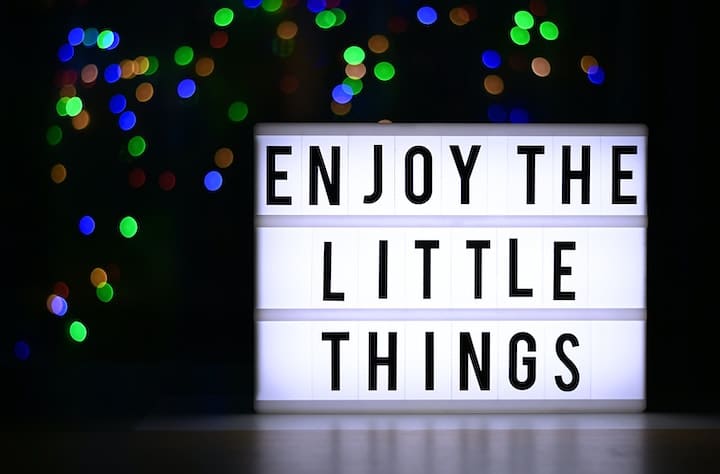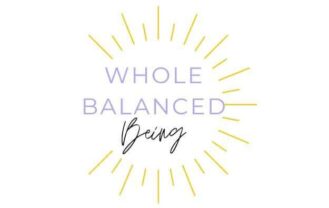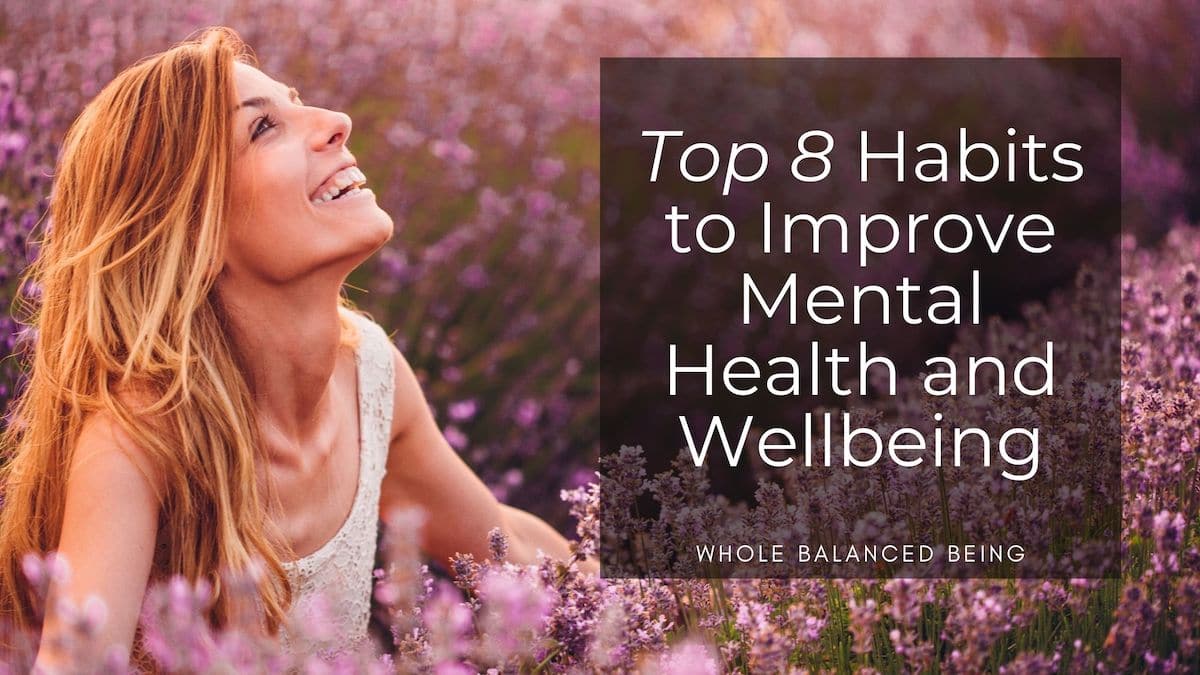We all have heard that it is important to take care of our bodies to live long, healthy lives. But what about our mental health?
Over the past few years, we have seen the true importance of taking care of our mental health so we can be our best selves and improve our well-being.
Having good mental health habits are important for living a HIGH-QUALITY life. If we don’t take care of our mental health, we can become depressed or anxious, have a lack of motivation, and much more.
To help improve your mental health and wellbeing, check out these 9 simple habits you can start TODAY for your mind and body to feel their best!
1. Eat a Balanced Diet
How does nutrition affect our mental health?
Eating healthy foods provides the body and mind nutrients they need to work properly. When our body and mind are not getting enough nutrition, it can lead to nutrient deficiencies and other health issues.
Science has been showing more and more the importance of having a healthy and balanced diet so your BRAIN can think clearly and improve your mood.
Find a balanced diet that works for YOU

While we need to eat healthy foods, our mental health can WORSEN if we try to eat healthy 100% of the time! You need to give yourself the flexibility to enjoy your favorite foods and special events.
For example, your birthday is coming up! Do you want to eat the same healthy food you have been eating every day or a slice of your favorite cake?
The CAKE, please! If you skip out on enjoying your favorite foods, you are more likely to feel stressed with your diet. This can lead to binge eating and an unhealthy relationship with your food.
Try to make 75% of your meals healthy with high-quality proteins, vegetables, fruits, beans, and whole grains. Below. Give yourself 25% of your diet for your favorite treats! Be sure to also stay hydrated with plenty of water.
2. Cut back on screen time
Millennials and Gen Z have been more exposed to screens than any other generation. These two groups also have a higher rate of depression and anxiety. One of the reasons why is because we have become ADDICTED to our screens.
Watching Youtube, scrolling on our phone, and receiving texts all release dopamine, a “feel good” chemical in our brain.
To help ease this addiction, check out how many hours you are using your phone or screens by looking into your device’s settings. There, start cutting back 15-30 minutes per day, and see the difference in how you feel!

Limit negative content
We all use screens as a way to wind down or even learn something new. While phones and the internet can be useful and educational, they can also be incredibly dark.
We are exposed to negative news and content faster and more than ever. Before the internet, you would wait 2-3 days before you would hear about breaking news from around the world in the newspaper.
Now, you can watch negative content happening live. While it is important to keep up to date with what is happening in the world, you do NOT need to be exposed to or see this content all the time.
Remove “Breaking News” alerts on your apps. Unfollow content creators or people on social media who create content that does not bring you joy or makes you feel negative.
Choose positive and empowering content
In substituting negative content, find creators that you find inspiring! Check out creators who make content about the things you love. There are also a lot of Youtubers with videos that help you relax and bring you close to nature.
3. Get outside!
Speaking of nature, try to get outside as often as possible!
So many of us are working inside and barely get any sunlight on our skin. We tend to quickly lose touch with the natural world. Simply go for a walk or a short drive, whether it is in nature or down the street to your local park.
Be present at the moment and observe your surroundings! If you see some flowers, watch them for a few minutes. How many colors do you see? Are there any bees flying around?
This is a great way to ground yourself, be in the present moment, and let go of anxious thoughts.
4. Surround yourself with supportive people
Remember how I said limit negative content on your screens? This also applies to the people in your life!
Take a look at the people who you surround yourself with. Are they uplifting and positive? Or do they tend to be negative and don’t provide any encouragement, or even bully you?
Spend more time with positive loved ones, who inspire you and are supportive. Limit time from friends and family who may be dragging you down. While you may love them, it is important to honor yourself and your boundaries.
If you need more support, check out different local or online groups with similar interests as you!
5. Talk it out
For some of us (like introverts), we tend to hold in our emotions when going through some personal challenges because we don’t want to burden others. We may also feel pressure to stay positive, and not be a “downer”. If we hold in our emotions, we suppress all of our feelings and thoughts, which can make us anxious, stressed, or irritable.
There are so many ways you can talk out your feelings. Talk to a loved one that you trust, and make you feel safe with expressing yourself.
If there are some things you want to keep private, start a journal. Write everything down you are feeling without even thinking. You can always read back on what you wrote and do some reflection.
If there is deep pain or trauma, start working with a therapist or counselor. They can help you work through your mental health challenges, provide a third-person perspective on what is happening in your life, and give you tools to work through things. My favorite online resource is BetterHelp, where you can apply for financial aid to make therapy more affordable!
6. Practice daily gratitude

When we feel anxious or stressed, it’s very easy to get caught up in our thoughts. The thing is, most of the things we are anxious or stressed about haven’t even happened yet. We need to get back into the present moment and remember what brings us joy.
Every day, say 3 things you are grateful for to yourself. They can be anything: from your cup of coffee to your job, to the loved ones in your life. You can do this first thing in the morning, before you go to bed, or when you start to feel stressed.
This helps us stay grounded in the present moment, and be thankful for all the positive things we have in our life. And don’t just think about it, FEEL it.
You can also start a gratitude journal to help you keep track of all the things you are grateful for. After a few weeks, take a look back, it will be amazing how many things can make your day.
7. Breathe!
Have you ever noticed that when you are feeling stressed or anxious, you sometimes do not breathe? Breathing intentionally and deeply helps the body and mind to relax. The best way to do this is with the 4-7-8 technique. Here are the steps:
1. Breath in for 4 seconds
2. Hold your breath for 7 seconds
3. Breath out for 8 seconds
Try this technique for 2-3 minutes. Gradually, your body will start to relax and any racing thoughts will calm down. Closing your eyes and visualizing your happy place makes this technique even more effective!
8. Take breaks to prevent burnout
One of the biggest problems is that many people have not learned how to listen to their bodies properly. Often, we will push ourselves to a breaking point and suffer from burnout. Burnout is the exhaustion of the body and mind caused by overwork.
To prevent this, we need to take more breaks. I’m not talking about your lunch breaks at work, I mean a real break.
It can be challenging to take a break, especially if we have a lot of responsibilities: work, family, school, etc. But if we don’t properly rest, we won’t have enough energy to finish the things we need to do.
Take a break from everything. This includes a break from your partner, your family, and your responsibilities. Even if it is just for a few hours, it can mean a world of difference.
Take this time to do the things you WANT to do, not things you think you need to do. Is there a book you’ve been wanting to read? Is there a recipe you want to try? When was the last time you went out on the town by yourself?
Breaks and time to yourself are essential to preventing burnout and hurting your mental health.
Take charge of your mental health and wellbeing
It can be a challenge to practice good mental health habits, especially when we get caught up in our anxiety and stress. While we cannot always change the world, we can change how we react to the world! Try out 2 of these habits to help improve your mental health and enjoy your life.
What healthy habits for mental health did YOU try? Be sure to leave a comment on this post or my Instagram @whole.balanced.being to share your thoughts!


I need to to thank you for this very good read!! I absolutely enjoyed every bit of it. I have got you book-marked to check out new stuff you postÖ
May I simply say what a comfort to discover somebody who genuinely knows what they are talking about over the internet. You actually understand how to bring a problem to light and make it important. More people ought to check this out and understand this side of the story. I cant believe you arent more popular because you surely possess the gift.